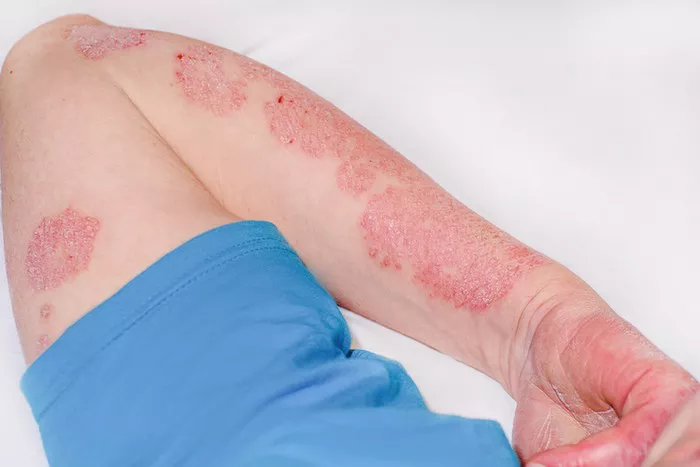Eczema, a common skin condition characterized by redness, itchiness, and inflammation, affects millions of individuals worldwide. Among its various manifestations, one of the most bothersome symptoms is the development of eczema bumps. These bumps, also known as papules or vesicles, can significantly impact an individual’s quality of life, leading to discomfort and distress. Understanding the underlying causes of these eczema bumps is crucial for effective management and treatment. In this comprehensive article, we delve into the multifaceted factors contributing to the formation of eczema bumps, shedding light on the intricate mechanisms at play.
1. Immune System Dysfunction:
The immune system plays a pivotal role in the development of eczema bumps. In individuals with eczema, the immune system responds excessively to certain triggers, leading to inflammation and the formation of papules. This immune system dysfunction can be attributed to genetic factors, as eczema often runs in families. Moreover, environmental factors such as allergens, pollutants, and microbial agents can exacerbate immune responses, triggering the onset of eczema bumps.
2. Skin Barrier Impairment:
A compromised skin barrier is a hallmark feature of eczema. The outermost layer of the skin, known as the stratum corneum, acts as a barrier, preventing moisture loss and protecting against external irritants. In individuals with eczema, this barrier function is impaired, allowing irritants and allergens to penetrate the skin more easily. As a result, the immune system mounts an inflammatory response, leading to the formation of eczema bumps. Factors contributing to skin barrier impairment include genetic predisposition, dry skin, and frequent exposure to harsh chemicals.
3. Allergic Reactions:
Allergens play a significant role in triggering eczema flare-ups and the formation of bumps. Common allergens such as dust mites, pet dander, pollen, and certain foods can elicit allergic reactions in susceptible individuals. When the skin comes into contact with these allergens, it may react by producing inflammatory chemicals, leading to the development of eczema bumps. Identifying and avoiding allergens is essential for managing eczema and preventing recurrence of symptoms.
4. Microbial Infections:
Microbial infections, particularly bacterial and fungal infections, can exacerbate eczema symptoms and contribute to the formation of bumps. In individuals with eczema, the skin barrier is already compromised, making it more susceptible to infection. Bacteria such as Staphylococcus aureus and fungi such as Candida albicans can colonize the skin, leading to secondary infections and the formation of pustules or vesicles. Proper hygiene practices and targeted antimicrobial treatments are essential for controlling microbial infections in eczema patients.
5. Environmental Factors:
Environmental factors play a significant role in triggering eczema flare-ups and exacerbating existing symptoms. Exposure to harsh weather conditions, such as extreme cold or heat, can dry out the skin and exacerbate inflammation, leading to the formation of eczema bumps. Additionally, indoor factors such as central heating, air conditioning, and low humidity levels can further aggravate eczema symptoms. Minimizing exposure to environmental triggers and maintaining optimal indoor humidity levels can help alleviate eczema-related skin issues.
6. Stress and Emotional Factors:
Stress and emotional factors can significantly impact eczema symptoms, including the development of bumps. Psychological stressors such as anxiety, depression, and chronic stress can trigger inflammatory responses in the body, exacerbating eczema flare-ups. Furthermore, scratching or rubbing the skin due to stress or anxiety can lead to skin damage and the formation of eczema bumps. Implementing stress-reduction techniques such as mindfulness, meditation, and relaxation exercises can help manage eczema symptoms and prevent the occurrence of bumps.
7. Hormonal Changes:
Hormonal fluctuations, particularly during puberty, pregnancy, and menopause, can influence eczema symptoms and contribute to the formation of bumps. Changes in hormone levels can affect the skin’s moisture balance and immune function, making individuals more susceptible to eczema flare-ups. Women may notice worsening eczema symptoms during certain phases of their menstrual cycle or during pregnancy due to hormonal changes. Understanding these hormonal influences can help individuals better manage their eczema and minimize the occurrence of bumps.
Conclusion
Eczema bumps, while often distressing and uncomfortable, are a common manifestation of the underlying inflammatory processes associated with eczema. A multifaceted approach that addresses immune system dysfunction, skin barrier impairment, allergic reactions, microbial infections, environmental triggers, stress, and hormonal factors is essential for effectively managing eczema and preventing the formation of bumps. By understanding the complex interplay of these factors, healthcare professionals and individuals with eczema can work together to develop personalized treatment plans aimed at alleviating symptoms and improving quality of life.

























